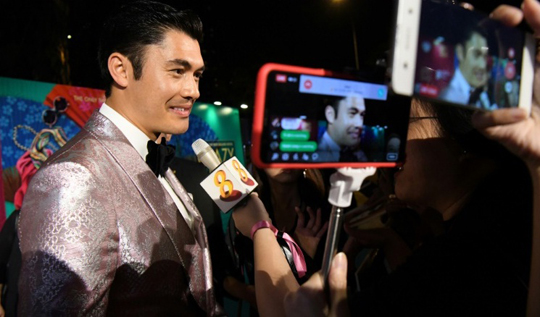The rom-com, which tells the Cinderella-like story of an ordinary Asian-American woman and her super-rich boyfriend, will likely do well in parts of Asia when it is released this week.
But it is not generating the same level of excitement as in Hollywood, where the Asian-American community has long been marginalised, and many in the region may well be wondering what all the fuss is about.
“Asians have been seeing themselves on screen in their own domestic films since cinema began,” Maggie Lee, chief Asia film critic for Variety, told AFP.
Still, those that watch the movie are likely to enjoy the film for what it is -- an entertaining rom-com -- and recognize the Hollywood hype is something particularly related to the Asian-American experience, she added.
The first Hollywood production since the Joy Luck Club in 1993 to have a majority-Asian cast, the movie has generated frenzied publicity in the US and has generally been well reviewed. Asians have often been relegated to sidekick roles in Hollywood in recent times while there have also been much-criticized attempts at “yellowface” casting when white actors attempt to make themselves look Asian. This was the case when Scarlett Johansson was cast in the Hollywood remake of Japanese anime classic Ghost in the Shell. Other Hollywood productions, such as The Great Wall set in China and The Best Exotic Marigold Hotel in India, have been criticized for drafting in a major white star to play the lead role or their cliche-filled representations of Asia.

